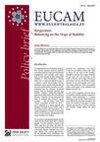The 2010 OSCE Kazakhstan Chairmanship: Carrot Devoured, Results Missing
The 2010 OSCE Kazakhstan Chairmanship: Carrot Devoured, Results Missing
Author(s): Vladimir D. Shkolnikov
Subject(s): Human Rights and Humanitarian Law, Government/Political systems, International relations/trade, Security and defense, Peace and Conflict Studies
Published by: CEPS Centre for European Policy Studies
Keywords: OSCE; security; cooperation; Europe; human rights; democracy; OSCE Kazakhstan Chairmanship;
Summary/Abstract: Since the Conference for Security and Co-operation in Europe (CSCE), a Cold War forum for dialogue between East and West, was turned into an Organisation for Security and Co-operation in Europe (OSCE), very little attention has been paid to countries that exercised the Organisation’s rotating chairmanships. Usually chairmanships were held by small Western or Central European nations that tried to build the consensus needed for the organisation’s decision-making. Even when the OSCE became a target of attacks by Russia and its allies for what they saw as excessive emphasis of the organisation on issues of democratic elections and human rights, the role of the chairmanship was not put under the microscope. For, example, outside observers who quickly developed views on the risks and benefits of the Kazakhstan chairmanship barely paid attention to the 2007 Belgian OSCE chairmanship. Only the organisation’s then staff had insight into that chairmanship’s policy of maximum accommodation of Russia and minimal support for the organisation’s Office for Democratic Institutions and Human Rights (ODIHR).
Series: EUCAM - Policy Brief
- Page Count: 5
- Publication Year: 2011
- Language: English
- Content File-PDF

